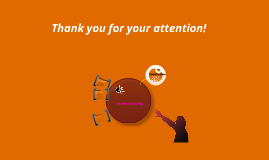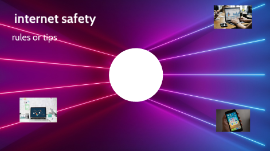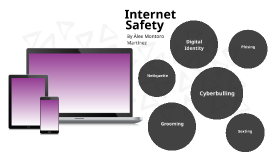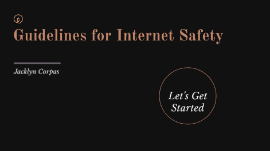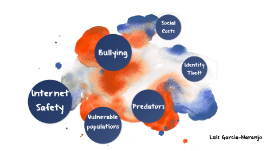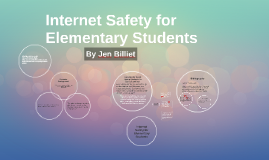Guidelines for Internet Safety Presentation
Transcript: Guidelines for Internet Safety Jacklyn Corpas Let's Get Started Digital literacy is when one can understand information and show it through writing or other platforms, such as the usage of digital devices Digital Citizenship is the way a person uses the information, and resources that they find online Internet Safety is the knowledge of how to stay safe online, to avoid security risks What is …? What is...? Digital Literacy: It makes sure that an individual is understanding what they are reading. Also, educates how and when to use digital technology. Digital Citizenship: Helps an individual uses their sources from internet and technology is a responsible way. Being educated on citizenship helps avoid cyberbullying and academic plagiarism. Internet Safety: Keeps a person safe from what/those who are online. Helps prevent personal information to be used by another. Privacy is kept private. Why is it important? Important Suggested Videos Quizlet Kahoot Remind101 prezi.com Blackboard Apps from app stores Edmodo Microsoft Office 365 YouTube Social Media Internet and Digital Resources Students Use Potential Concerns Internet Safety: An individual may encounter exposure to inappropriate material, harassment, interactions with online strangers online or in real life. Potential Concerns Potential Concerns Privacy and Security: If not careful one's identity could be stolen, credit card information, passwords, and other personal/private information. Cyberbullying: Can cause the victim to suffer from low self-esteem, depression, feel hopeless, and suicidal. Next Relationship and Communication: When communicating with others online one must be careful, not everyone is who they say they are online. Be sure not to give out personal information to someone you met online. Self-Image and Identity: An individual may suffer from an identity crisis from their real life and their online life. Also, what an individual post online it can forever affect their lives. Next Digital Footprint and Reputation: Whatever an individual posted online is forever in the cloud, even if is deleted. If unaware of this individual can mess up their life due to something they posted long ago. Bring Your Own Device: Students can find a way to open restricted apps/websites. Not everyone has the money to have their own device. A teacher is unaware of what the students have on their devices. Copyright: If an individual copyrights something they may suffer legal issues. Next Students should be aware of the all the potential concerns that comes from using technology and the internet. They should also know that it should be taken very serious. What should students know and do? Solutions Keep passwords to themselves Not to share personal information Not to meet up with online strangers Cite their sources NOT TO PLAGIARIZE Parents need to know what their child is doing online. What should parents know and do? Parents Educate their children about online safety Be informed on child's passwords Kid-proof their computers and internet Guides for Social Media, Cyberbullying, Cyber Security, and Internet Safety https://internetsafety101.org/parentsguidetosocialmedia Online Safety Tips for Parents http://www.pbs.org/parents/expert-tips-advice/2018/01/online-safety-tips-parents-young-children/ Resources for parents to be educated on safety and privacy Resources Website https://www.netsmartz.org/Home Videos on online issues (Social Media, Cyberbullying, Online Safety, Online Privacy, etc.) Tip Sheets Presentations https://www.esafety.gov.au/education-resources/classroom-resources Game https://www.esafety.gov.au/education-resources/classroom-resources/games-and-quizzes Online safety activities, games and quizzes that help reinforce key online safety messages to children. Topics: Cyberbullying, Online Security, Sharing Passwords, Free Downloads, Online Friends Resources parents can use to teach their children about Internet Safety Parents teach Internet Safety Safety Contract: http://www.safekids.com/contract_kid/ My Classroom rules and guidelines Rules and Guidelines 1. Respect others. 2. Come prepared to class with supplies and homework completed. 3. Keep your feet and hands to yourself. 4. Listen to when the teacher is talking, and follow directions. 5. Raise your hand when you would like to speak in class. Summary Summary Both parents and children need to be aware that the internet and technology is not always safe. they need to know how to stay safe when online. Online issues. (n.d.). Retrieved July 7, 2018, from https://www.internetmatters.org/issues/ Magid, L. (2013, May 26). SafeKids.com. Retrieved July 7, 2018, from http://www.safekids.com/child-safety-on-the-information-highway/ Heirman, W., & Walrave, M. (2008, November 01). Assessing Concerns and Issues about the Mediation of Technology in Cyberbullying. Retrieved July 6, 2018, from https://cyberpsychology.eu/article/view/4214/3256 StopBullying.gov. (n.d.). Retrieved July 6, 2018, from






